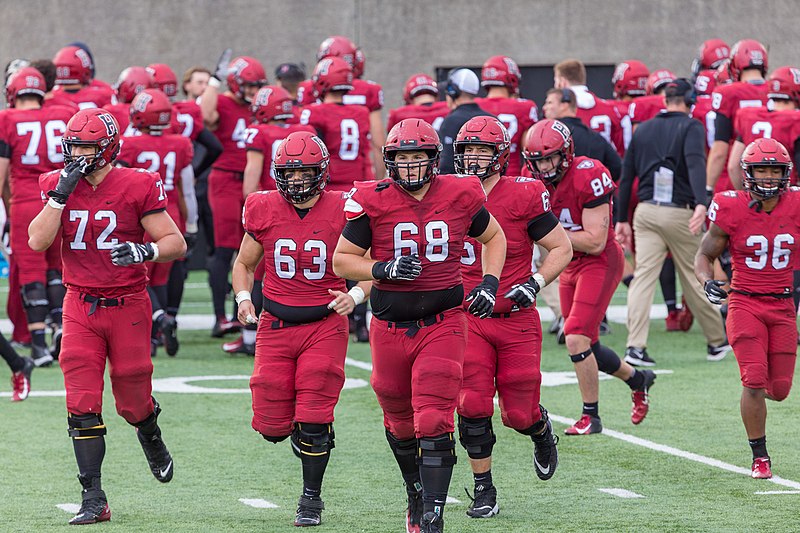With the Ivy League announcing today that it plans to suspend its athletic programs this fall, we asked three C2i researchers to provide their main takeaway from the decision. Here’s what they had to say:
Duke, Notre Dame, and Vanderbilt will soon have to choose sides.

When former Duke President Dick Brodhead left his position of Dean of Yale College to become the president of Duke, a student pointed out he was leaving a “marriage” for a “younger, more athletic” institution. And that is what many institutions have tried to be – younger, more athletic versions of the Ivy League. Duke is Harvard with big time basketball. (And to be fair, this relationship canwork both ways as Harvard’s basketball coach is a Duke Alum). Until now, institutions like these could be both athletic and Ivy-esque. And why shouldn’t they want to be Ivy-esque? Being like the Ivies gives an institution prestige!
Well, the Ivy League’s decision now puts Duke and its athletic peers in a bind. Those institutions will have to make a choice – be more like the Ivy League? Or be more like their more athletic conference competition. Duke, Vandy, and Notre Dame (and probably Northwestern and Stanford) will have to choose whether it is cooler to be athletic or smart. I’d be willing to bet that Notre Dame decides to hang out with the jocks and Duke goes full on revenge of the nerds. Only time will tell… but not much time. Less than 24 hours after the Ivy League cancelled its basketball tournament in March, Duke – the home of Coach K and Blue Devils basketball – announced it would forgo the rest of its Basketball season.
The Ivy League just gave other schools a “way out.”
By Katie Felten

colleges and All universities are facing extraordinary uncertainty. For many small schools, athletics teams provide not only gameday revenue, but also guaranteed matriculation for large groups of students. Harvard and Princeton will have high yield no matter the circumstances, but not every institution is so lucky. There are institutions that are actively making decisions weighing financial stability against student safety.
The recent Ivy League decision, however, provides a way out for smaller schools feeling pressure to play just to keep up enrollment. When weighing the safety of students versus justifying the need for athletic competitions, the fact that elite institutions with near unlimited resources to leverage regarding public health have chosen precaution provides an example to which less-endowed schools can point. The spin is simple, “Hey, Harvard with its $40 Billion endowment couldn’t figure out football; Sorry boosters, if they can’t figure it out, neither can we.” The Ivy League making their choice early provides a way out for schools looking to justify removing athletics for the Fall 2020.
The Ivy League left the innovation up to LSU.
By Luis Toledo

Crisis breeds innovation, and the Ivy League just decided not to be innovative. The Coronavirus pandemic has forced institutions of higher education to find ways to keep their traditions alive. Spend a Saturday in the South and you’ll see the tradition of college football may never die. Today the Ivy League has decided that without Fall sports, their institutions will still live to see another year, if not a few more. It is now up to the colleges and universities that depend on sports for enrollment and revenue to innovate. We expect to see institutions with these needs figure out ways to still hold their sports events. While we believe that small institutions are now compelled to create new alternatives, the current list of options does not look promising for student health. The options on the table range from intermittent COVID-19 testing for all student athletes and staff to crowdless games. Amidst all of this uncertainty, some institutions have decided to welcome a fraction of their student athletes back on their campuses for some practices. This leads us to believe that Fall sports will happen, at least somewhere in the nation. And if Fall football happens, we will need new medical and public health innovations to keep the tradition (and people) alive. Look to institutions dependent on athletics revenue – both TV-revenue hungry SEC institutions like LSU and UGA, and small institutions dependent on the tuition revenue from athlete enrollment – to be the engines of innovation.
Leave a Reply